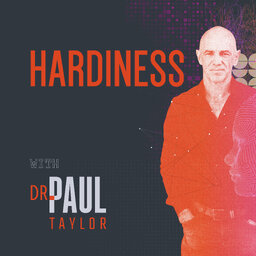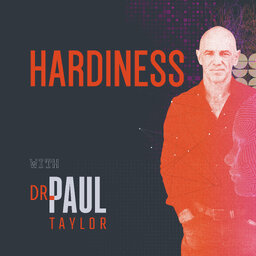Mojo Monday - Untangle Yourself from Your Inner Critic
All of us have an inner critic. Eckhart Tolle calls that part of us the Tormentor, we call it our inner Gremlin. Whatever you want to call it, you have a choice whether this voice dictates your life. In this episode, Carly dives into some strategies so you can get unstuck and live your life well.
Loving the podcast? Consider leaving a review as it helps us keep the podcast going.
Carly Taylor is a Mental Fitness Coach passionate about helping people tame their mind so they can live a rich, meaningful and fulfilled life. She is trained in ACT (Acceptance and Commitment Therapy), Japanese Psychology, is an IIN qualified Health Coach and is currently undergoing a Masters of Counselling. For more information, go to carlytaylorcoaching.com.au or follow her on Instagram: carly_taylor_coaching.
In 1 playlist(s)
Hardiness with Dr Paul Taylor
Host Dr Paul Taylor, a Psychophysiologist, Neuroscientist, Exercise Scientist, and Nutritionist inte…Social links
Follow podcast
Recent clips

How to dramatically improve the metabolic health and performance of your skeletal muscle: Wisdom Wednesdays
11:41

Stop Letting Comparison Steal Your Confidence With Carly Taylor
05:06

Discovering Your Ikigai with the Japanese Rock-star Neuroscientist, Ken Mogi
55:28
 Hardiness with Dr Paul Taylor
Hardiness with Dr Paul Taylor